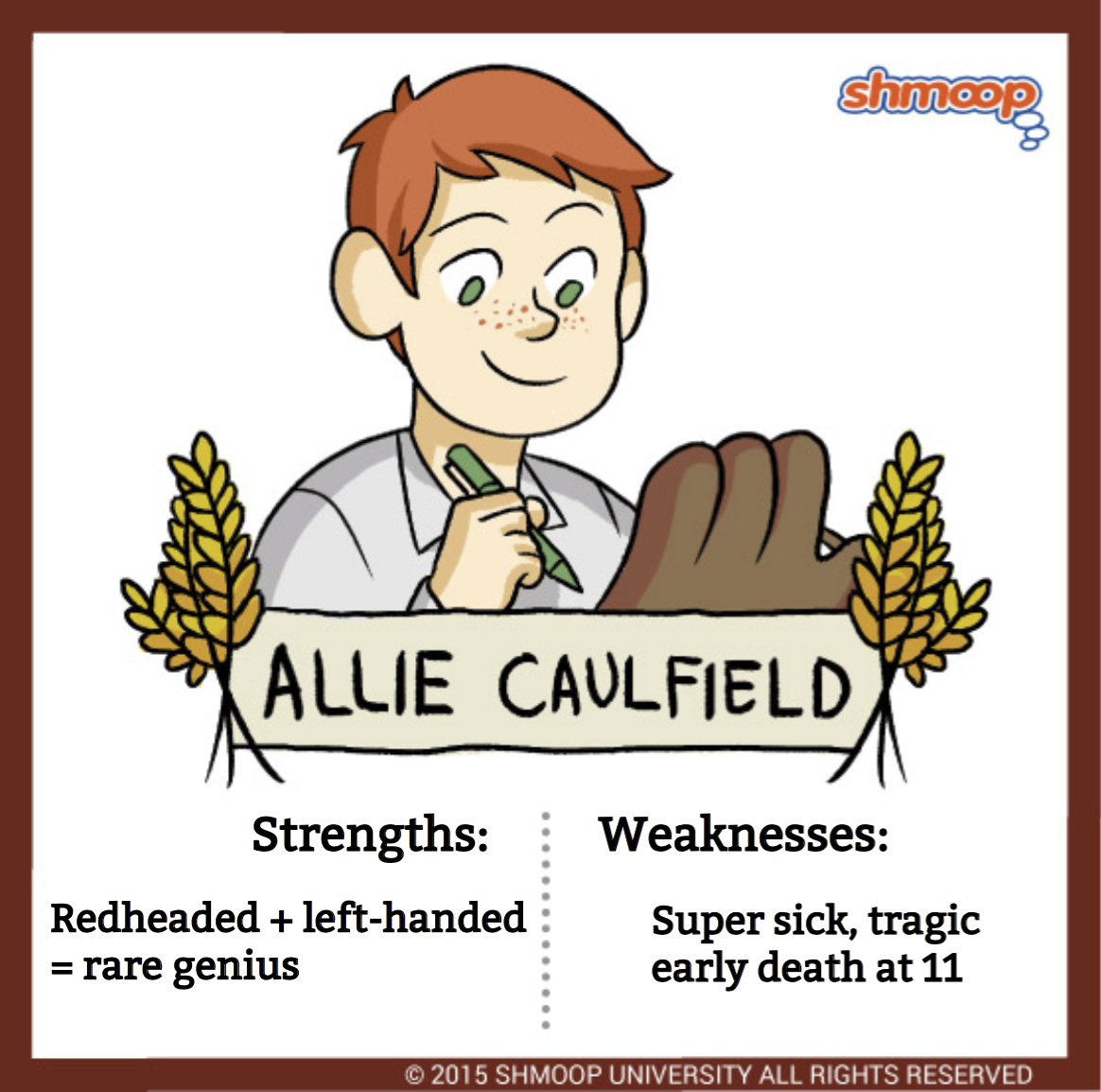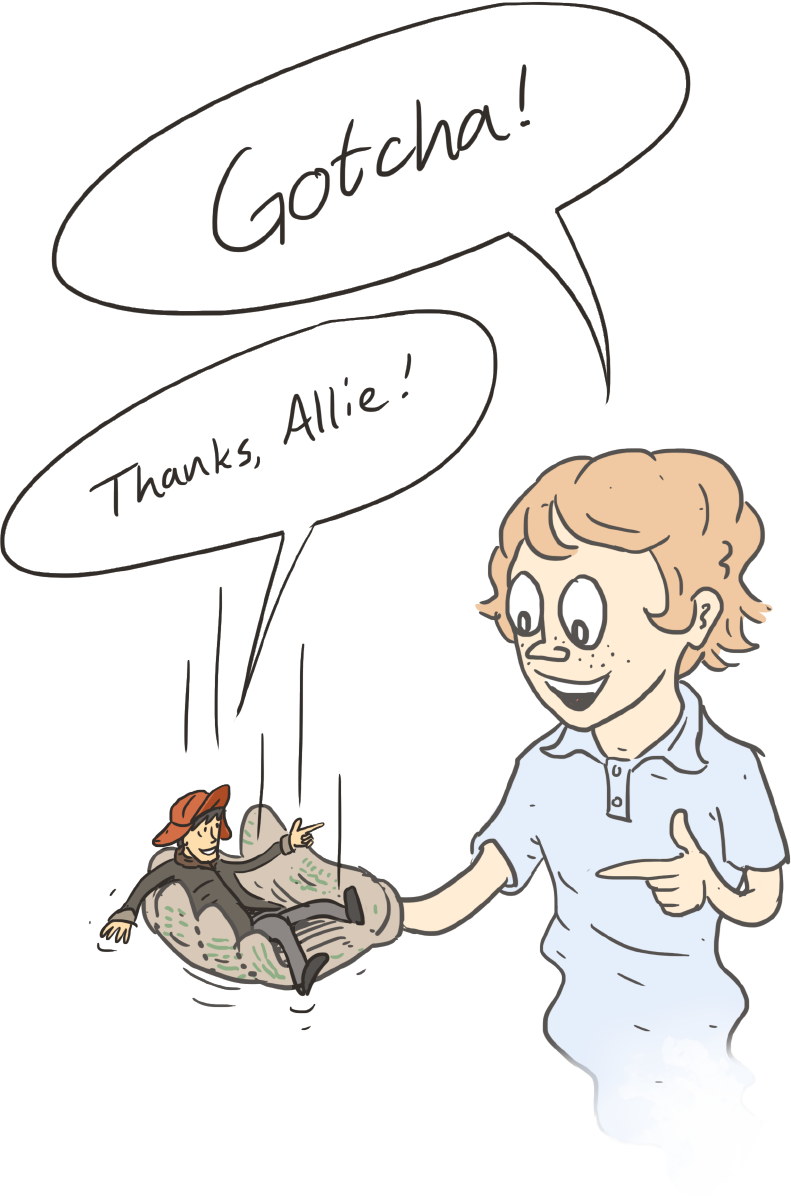Character Analysis

(Click the character infographic to download.)
Key fact: Allie is dead.
Second (and related) key fact: we never meet him, but we sure do hear a lot about him.
Here are some more facts: Allie was Holden’s younger brother who died of leukemia on July 18, 1946, when he was eleven and Holden was thirteen. The night of his death, Holden broke all the windows in the garage and had to be hospitalized. Allie was red-haired and left-handed. He wrote poems on his glove in green ink.
Hm. Seems pretty factual and not too informative, right? Well, let’s take another look: Allie was left-handed, a.k.a special. He had red hair, a.k.a. he was special. He wrote poems on his glove, a.k.a. he was sensitive and emotional; he used green ink, a.k.a. he was special.
Holden's rendering of this information also tells us a lot of about the way he thinks about Allie: he idealizes him. We don't doubt that Allie was a great kid, but according to Holden, he's the most intelligent, nicest, sweetest, most endearing kid with the best sense of humor you'll ever meet. In Holden's love for his brother and in his pain over Allie's death, Holden has glorified Allie into something of a saint: “it wasn’t just that he was the most intelligent member in the family. He was also the nicest …. God, he was a nice kid, though” (5.7).
Notice that Holden uses the word “kid”: Allie died at a comfortably (if tragic) prepubescent eleven years old. Having never been corrupted by the world of sex and adults, never has to "go over the edge" of the great cliff that Holden imagines.
Allie, Can You Hear Me?
Of course, being a saintly and perpetually-young deceased person makes Allie a great go-to security blanket for Holden in times of none-too-infrequent times of distress. Take Holden’s rock-bottom moment, when he’s walking down the street and thinking about disappearing:
Anyway, I kept walking and walking up Fifth Avenue, without any tie on or anything. Then all of a sudden, something very spooky started happening. Every time I came to the end of a block and stepped off the goddam curb, I had this feeling that I'd never get to the other side of the street. I thought I'd just go down, down, down, and nobody'd ever see me again. Boy, did it scare me. You can't imagine. I started sweating like a bastard—my whole shirt and underwear and everything. Then I started doing something else. Every time I'd get to the end of a block I'd make believe I was talking to my brother Allie. I'd say to him, "Allie, don't let me disappear. Allie, don't let me disappear. Allie, don't let me disappear. Please, Allie." And then when I'd reach the other side of the street without disappearing, I'd thank him. (25.8)
Here, Allie is almost like a guardian angel for Holden, keeping him connected to the world. In that way, Allie is the one acting like the catcher in the rye: because he’s eternally dead and eternally innocent, he’s somehow keeping Holden from going over his own cliff—from going “down, down, down.” See how those roles are reversed? Holden wants to be for someone what Allie is to him.

But why doesn't Holden just tell us all this? Why do we have to accidentally stumble into the topic via Stradlater's English composition, or a reminiscence about Bobby Fallon, or pneumonia?
Well, as Holden himself says, "you don't know what interests you most till you start talking about something that doesn't interest you most" (24.24).
Allie Caulfield Timeline